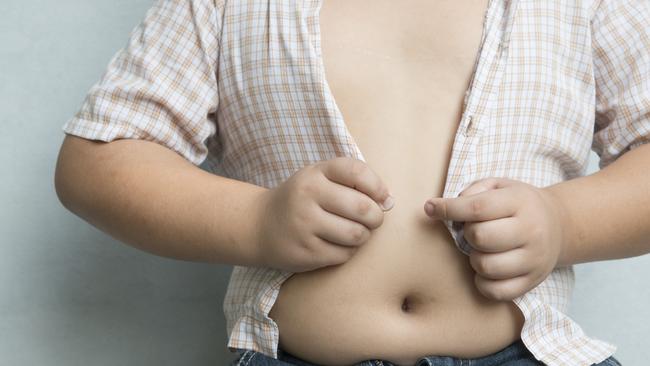Parents reluctant to put their child on the scales
Worried parents who are reluctant to put their kids on the scales or use body mass measures, may be failing to identify signs of childhood obesity.
VIC News
Don't miss out on the headlines from VIC News. Followed categories will be added to My News.
Parents want to know how much their child weighs, but are reluctant to use body mass measures or allow teachers to put their child on the scales.
This means they may fail to identify if their child is overweight, a new Australian study of 219 parents shows.
Most parents feel a sense of responsibility about their child’s weight, but need more support to objectively measure if their child is overweight or obese.
“While parents appear to acknowledge the seriousness of childhood overweight and obesity, they often fail to recognise their own child’s weight issue and underestimate its severity,” lead author Kamila Davidson from Queensland University of Technology said.
While subjective methods can usually identify more severe levels of obesity, overweight children are often misdiagnosed as being within a healthy weight status range.

Although 87 per cent of parents surveyed said they’d checked their child’s weight in the past year, 68 per cent didn’t use an objective Body Mass Index (BMI) or weight/height chart.
Less than one in five parents wanted schools to have the responsibility of weighing their child and only one quarter wanted a GP to weigh their kid each visit.
MORE NEWS:
SIDE-EFFECT OF TOP SCHOOL’S PHONE BAN
CENTRELINK GLITCH COSTS FAMILIES THOUSANDS
One parent said mums and dads “should choose for themselves whether weight is an issue, where a child is overweight then a GP would be in the best position to mention it, definitely not the school”.
Writing in the Australia and New Zealand Journal of Public Health, Ms Davidson concluded that parents “should be better supported by health professionals and governments throughout the journey of managing their child’s weight status, because they all play a significant role in addressing childhood overweight and obesity”.
The findings come as 20 to 25 per cent of Australian children are overweight or obese.
